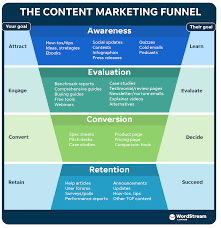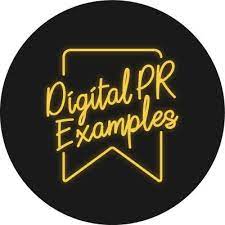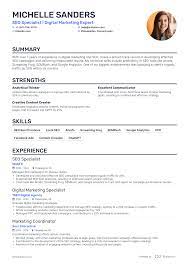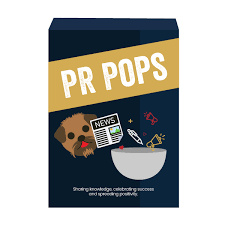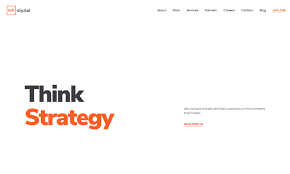Unlocking Success: The Art of Digital Marketing Content Creation
The Power of Digital Marketing Content Creation
In today’s digital age, content creation plays a crucial role in the success of any digital marketing strategy. With the ever-increasing competition online, businesses need to create compelling and engaging content to capture the attention of their target audience and drive meaningful interactions.
Effective digital marketing content creation involves more than just writing a few blog posts or social media updates. It requires a strategic approach that takes into account the preferences and behaviours of your target audience, as well as the goals of your business.
Key Elements of Successful Digital Marketing Content Creation:
- Understanding Your Audience: Before creating any content, it’s essential to have a clear understanding of your target audience. What are their interests, pain points, and preferences? Tailoring your content to resonate with your audience will increase engagement and drive conversions.
- Consistency: Consistency is key in digital marketing content creation. Regularly publishing high-quality content helps build brand credibility and keeps your audience engaged over time.
- SEO Optimization: Optimizing your content for search engines is crucial for improving visibility and driving organic traffic to your website. Incorporating relevant keywords, meta tags, and high-quality backlinks can help improve your search engine rankings.
- Visual Appeal: Visual elements such as images, videos, infographics, and animations can significantly enhance the appeal of your content and make it more shareable on social media platforms.
- Call-to-Action (CTA): Every piece of content you create should include a clear call-to-action that prompts users to take the desired action, whether it’s signing up for a newsletter, downloading a resource, or making a purchase.
The Benefits of Effective Digital Marketing Content Creation:
By investing time and resources into creating high-quality digital marketing content, businesses can reap numerous benefits:
- Increased Brand Awareness: Compelling content helps raise brand awareness and establish your business as an authority in your industry.
- Improved Customer Engagement: Engaging content encourages meaningful interactions with your audience, fostering loyalty and trust.
- Enhanced SEO Performance: Well-optimized content can improve your search engine rankings and drive organic traffic to your website.
- Better Conversion Rates: Relevant and persuasive content can influence purchase decisions and drive conversions at various stages of the customer journey.
In conclusion, digital marketing content creation is a powerful tool that can help businesses connect with their target audience, build brand credibility, drive engagement, and ultimately achieve their marketing objectives. By following best practices and staying attuned to evolving trends in digital marketing, businesses can create compelling content that resonates with their audience and drives success in the competitive online landscape.
Essential Insights into Digital Marketing and Content Creation: A Guide to Understanding and Mastering the Process
- What are the 7 steps of content marketing?
- What is digital media content creation?
- How do I start digital content creation?
- Is digital marketing the same as content creation?
- Why is content creation important in digital marketing?
- What is the difference between digital marketing and content creation?
- Do digital marketers do content creation?
What are the 7 steps of content marketing?
In digital marketing content creation, the 7 steps of content marketing serve as a roadmap to creating and distributing valuable content that resonates with your target audience. These steps typically include defining your goals and target audience, conducting research to understand their needs and preferences, developing a content strategy, creating high-quality and engaging content, optimizing it for search engines, promoting it through various channels, and measuring its performance to refine future efforts. By following these structured steps, businesses can effectively engage their audience, drive traffic, and achieve their marketing objectives through strategic content marketing initiatives.
What is digital media content creation?
Digital media content creation refers to the process of producing various forms of digital content, such as videos, images, blog posts, social media updates, infographics, and more, with the purpose of engaging and informing an online audience. It involves strategically planning, designing, and developing content that is tailored to the preferences and behaviours of the target audience. Digital media content creation plays a vital role in digital marketing strategies by helping businesses connect with their audience, build brand awareness, drive website traffic, and ultimately achieve their marketing goals in the competitive online landscape.
How do I start digital content creation?
To start digital content creation, it is essential to begin by defining your goals and target audience. Understand who you are creating content for and what message you want to convey. Conduct thorough research on your industry, competitors, and trends to identify gaps and opportunities. Develop a content strategy outlining the types of content you will create, the platforms you will use, and the frequency of publishing. Invest in quality tools and resources that will help streamline the content creation process, such as graphic design software, video editing tools, and content management systems. Finally, be consistent in creating valuable and engaging content that resonates with your audience to build brand credibility and drive results in your digital marketing efforts.
Is digital marketing the same as content creation?
In the realm of digital marketing, it is important to distinguish between digital marketing and content creation. While digital marketing encompasses a broader spectrum of strategies and tactics aimed at promoting products or services online, content creation is a specific component within the digital marketing ecosystem. Content creation involves crafting compelling and relevant materials such as blog posts, videos, social media updates, and infographics to engage target audiences and drive desired actions. While content creation is a vital aspect of digital marketing, it is just one element among many that collectively contribute to a successful online marketing strategy.
Why is content creation important in digital marketing?
Content creation is essential in digital marketing for several reasons. Firstly, high-quality and engaging content helps businesses establish credibility and authority in their industry, building trust with their target audience. Secondly, content creation plays a crucial role in driving organic traffic to websites through search engine optimisation (SEO), improving visibility and attracting potential customers. Additionally, well-crafted content enables businesses to effectively communicate their brand message, products, and services to a wider audience, ultimately leading to increased brand awareness and customer engagement. In essence, content creation is a cornerstone of successful digital marketing strategies, providing businesses with the means to connect with their audience, drive conversions, and achieve their marketing goals effectively.
What is the difference between digital marketing and content creation?
In the realm of digital marketing, the distinction between digital marketing and content creation lies in their respective roles within a comprehensive marketing strategy. Digital marketing encompasses a broad range of activities aimed at promoting products or services online, including social media marketing, email campaigns, search engine optimisation (SEO), and more. On the other hand, content creation specifically focuses on producing engaging and relevant content such as blog posts, videos, infographics, and social media updates to attract and engage target audiences. While digital marketing involves the strategic deployment of various tactics to reach and convert customers, content creation serves as the foundation for delivering valuable information and building relationships with audiences in the digital landscape.
Do digital marketers do content creation?
In the realm of digital marketing, content creation is a fundamental aspect of a marketer’s role. Digital marketers are often responsible for crafting engaging and relevant content across various online platforms to attract and retain audiences, drive traffic, and ultimately achieve marketing objectives. From writing blog posts and social media updates to creating videos, infographics, and email campaigns, digital marketers play a crucial role in developing content that resonates with target audiences and aligns with the overall marketing strategy. By leveraging their creativity, strategic thinking, and understanding of audience preferences, digital marketers effectively utilise content creation to enhance brand visibility, engagement, and conversion rates in the dynamic digital landscape.



